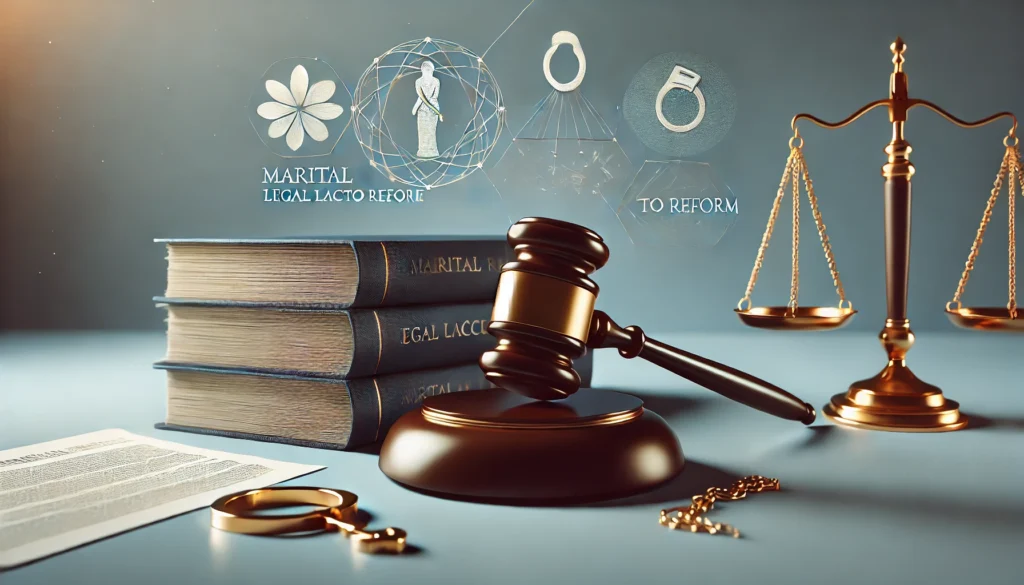Published On: 15th January, 2025
Authored By: Preeti
GD Goenka University
Abstract:
The International Criminal Court represents a cornerstone for the enforcement of war crimes by bringing the perpetrators to book for heinous violations of international humanitarian law. The Rome Statute created the International Criminal Court back in 2002 and charged it with the responsibility of investigating crimes against humanity, war crimes, genocide, and aggression. It acts as a court of last resort if national systems cannot prosecute for corresponding crimes. The International Criminal Court, or the ICC, was established in 2002 under the Rome Statute as an independent, permanent institution that tries all persons accused of war crimes, crimes of genocide, crimes against humanity, and crimes of aggression. In light of such examples of temporary ad hoc tribunals as the International Criminal Court for the former Yugoslavia (ICTY) and the International Criminal Tribunal for Rwanda (ICTR), its creation can, in itself, become a major step toward upholding the principles of international justice. In principle, the International Criminal Court would be a permanent court that, in cases in which national courts either are unwilling or unable to exercise their jurisdiction, would ensure that the most serious international crimes are brought before it. Still, in this respect, the ICC remains an essential actor in the global fight for justice and accountability. Meanwhile, with regards to the duties of command and civilians defence in times of an armed conflict, substantive contributions have been given towards the development of international law. Despite all the objections brought about, the ICC remains an important element in the prosecution of war crimes and prevention of atrocities for it gives a loud message that people committing crimes will be held responsible. This article discusses the role of the ICC in prosecutions concerning war crimes, problems it faces, and its impact on international justice.
Keywords: ICC (INTERNATIONAL CRIMINAL COURT), ROME STATUTE, COMPLEMENTARITY PRINCIPLE, CRIMES AGAINST HUMANITY, WAR CRIMES, ACCOUNTABILITY, STATE COOPERATION, IMPUNITY, PROSECUTION
Introduction: Function of International Criminal Court in Prosecution of War Crimes
The ICC has strengthened the international law by advancing justice and at the same time preventing atrocities in the future. The International Criminal Court, ICC, was established to assuage the gravest international crimes, acts of war, genocide, crimes against humanity, and crimes of aggression, in general. The International Criminal Court, ICC, was established through the Rome Statute of 2002 and has subsequently grown to symbolize the global commitment that epitomizes an end towards impunity of those who commit horrible crimes.
Background and Purpose of ICC:
The ICC stemmed from the long struggle within the international community to make individuals liable for crimes committed in an armed conflict. As early as World War II, the Nuremberg and Tokyo Trials prove it is indeed plausible to hold trials of war crimes against people who entail military and political leaders; however, the international justice system had lacunas for a long time because of the lack of a permanent tribunal. Examples of such permanent tribunals include the International Criminal Tribunal for Rwanda and the International Criminal Tribunal for the Former Yugoslavia, both formed to address specific crisis situations but with very limited jurisdiction. The Rome Statute of 1998 came into effect in 2002 and established the ICC as a permanent international court. [1]It was to ensure that those responsible for some of the most heinous offenses would not go unpunished and would be seen as a warning against such crimes in the future. There are four major types of crimes over which the court has jurisdiction: namely, crimes against humanity, war crimes, genocide, and crimes of aggression. Serious breaches of the laws and customs of war as embodied in international law, particularly the Geneva Conventions, are technically known as war crimes. Deliberate targeted killing of civilians, rape, torture, recruitment of children into the military, and destruction of civilian infrastructure are some examples of these violations.
These crimes are prosecuted by the International Criminal Court (ICC) to enforce the principles of international humanitarian law, aimed at reducing the effects of armed conflict on both the fighters and the civilian populations. The operational framework and limitations of the jurisdiction of the ICC shape its role in cases of prosecution for war crime. Any war crime committed after 1 July 2002, the date the Rome Statute came into force, would be within the court’s jurisdiction. The court can exercise its jurisdiction over the crimes committed by citizens of a state party or on the territory of a state party to the Rome Statute. As evident in Sudan and Libya referring themselves to the ICC, it is within the authority of the United Nations Security Council to refer cases to the ICC even when they happen within a non-member state. [2]International armed conflicts, and non-international armed conflicts are the two categories of war crimes on which the ICC brings its prosecution. The NIAC (Non- International Armed Conflict) case is where the ICC handles crimes within the state that usually occurs in civil wars or insurgencies. In IAC, the ICC brings prosecution of crimes wherein one state has offended another. The complementarity principle, of which it postulates that the ICC is a court of last resort, guides the prosecution of the ICC in relation to war crimes cases. Only in those instances whereby national courts are either incapable or unwilling to prosecute war crimes may the ICC intervene. This ensures the respect of state sovereignty while following through only when the domestic legal system is incapable of delivering justice in the most serious of circumstances.
Impact of the ICC on International Law:
The International Criminal Court made its mark on the war crime area, though far from perfect, in international justice, and accountability for such serious crimes. It clearly communicated that no one is above the law by trying offenders against some of the most serious crimes. Its contributions have been a call for voice for the victims, bringing more awareness into war crimes and the expectation of accountability in general from all around the world. The ICC has also impacted the development of international law, particularly concerning the situation of civilians in armed conflict and command responsibility. Its efforts have underscored the importance of respecting international humanitarian law during conflict, and its decisions have contributed to the clarification of the roles that political and military leaders must assume on these issues. In addition, the existence of the ICC prevents potential perpetrators of war crimes.[3] Although it is very difficult to tell the effectiveness of this deterrence, heads and commanders facing conflict situations might behave otherwise if they fear trial from an international court.
Obstacles Faced by ICC in Prosecution of War Crimes:
Despite such a crucial institution as the ICC in prosecution for war crimes, there exist significant hindrances preventing it from becoming more effective.
- Appearance and State Cooperation: The biggest hurdle to the effective performance of the ICC is the unwillingness of states to cooperate. The ICC expects the states to arrest suspects and enforce its rulings; however, the truth remains that most of them decline to do so, especially during high-profile political personalities. For instance, its authority was undermined when most states allowed Omar al-Bashir to travel without being arrested even though he had a warrant of arrest against him.
- Limitations of the Jurisdiction: – These are the crimes committed on the territories of states parties to the Rome Statute or by persons who are nationals of those states. Thus, only these crimes fall within the jurisdiction of the ICC. The result is that a very large proportion of conflicts, such as those concerning major countries like China, Russia, and the United States, which are not parties to the International Criminal Court, are excluded from its scope. This has caused numerous criticisms against the ICC, claiming that the organization is biased. The ICC is making allegations upon African heads of states more than finding others guilty of committing crimes, according to critics.[4]
- Political Coercion and UNSC Participation: – The political dimension of the ICC is heightened by its dependence on UNSC referrals. Since members of the UNSC-the five permanent members in particular; namely, US, China, Russia, France, and the UK-could delay or facilitate the investigations by the ICC based on their own geopolitics’ interests.
- Evidence of War Crimes: – It is hard to proof in a majority of the very complicated war crimes cases. The ICC has to depend on witnesses in proving whether the person taken before the court was directly responsible for the crimes or that he had command responsibility, undertaking in numerous places which is not easy to be achieved since most people are reluctant to give testimonies while still in the combat areas. The danger and difficulty in collecting evidence increase many folds especially in combat zones where even fighting still going on.
- Lengthy Trials: – The ICC is known to hand out lengthy, convoluted trials. In some cases, cases may drag for long periods of time, leaving victims of those cases frustrated that the ICC moves too slowly or inefficiently. It is factual that it has taken as long as six years from the issuance of an arrest warrant before Thomas Lubanga, a figure with the first conviction of the court, received his verdict.
Conclusion
Upholding international justice and prosecuting war crimes relies much on the International Criminal Court. It experienced some significant successes like prominent media-captured convictions and embodiment of atrocity accountability. It also has to face some severe challenges as well, such as political intervention, lack of cooperation from states, and the impossibility of gauging war crimes. This being said, it is a challenge that the ICC needs to overcome in carrying out its mandate to end impunity for international crimes. The complimentary principle under which the ICC operates stipulates that the ICC can only presume the right of action in situations where domestic jurisdictions are unable or unwilling to act. This provides the assurance that in case national justice systems fail, the ICC will not violate state sovereignty while providing a means to hold individuals responsible. However, its jurisdiction is limited to only crimes committed by citizens of states party to the Rome Statute or on their territory. Specific scenarios where the UNSC refers cases such as the Sudan and Libya ones can also consult the ICC. Therefore, the role of the court in prosecuting war crimes remains paramount in an effort to give justice to victims as well as preventing such atrocities from occurring in the future to continue contributing toward the greater goal of international peace and security, either through citizens of a state party to the Rome Statute or another state party.
Reference(s):
[1] Rome Statute of the International Criminal Court 1998 (adopted 17 July 1998, entered into force 1 July 2002) 2187 UNTS 3, art 5.
[2] UN Security Council Resolution 1593 (31 March 2005) UN Doc S/RES/1593.
[3] Dapo Akande, ‘The Jurisdiction of the International Criminal Court over Nationals of Non-Parties: Legal Basis and Limits’ (2003)
[4] Mark Klamberg (ed), Commentary on the Law of the International Criminal Court (Torkel Opsahl Academic Publisher 2017).




